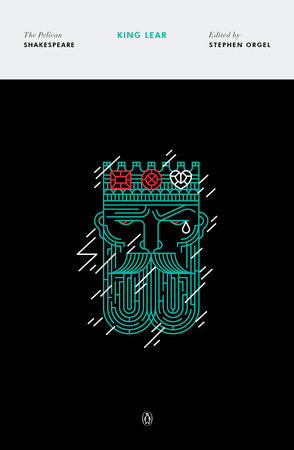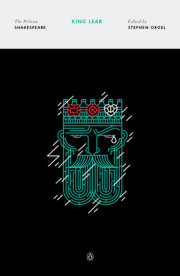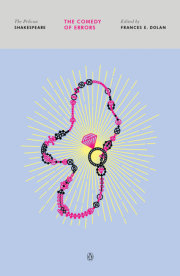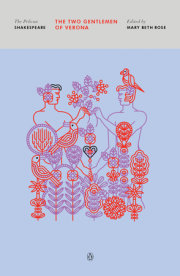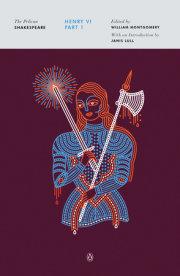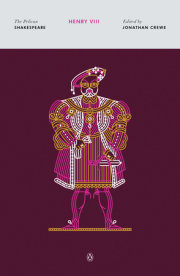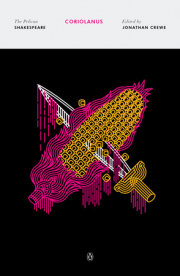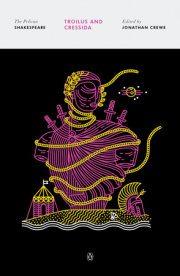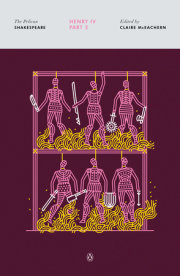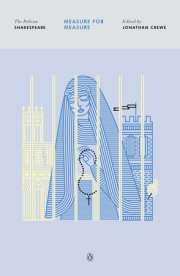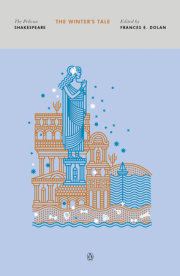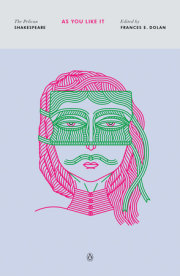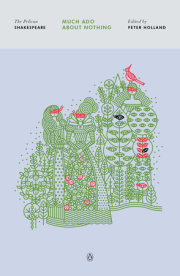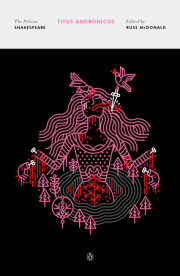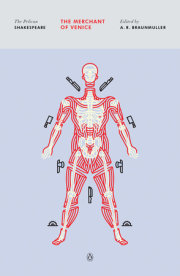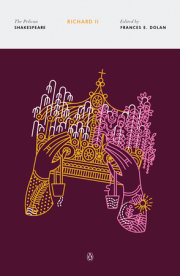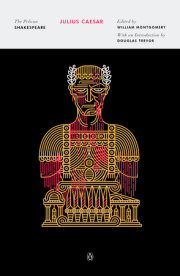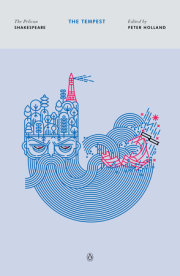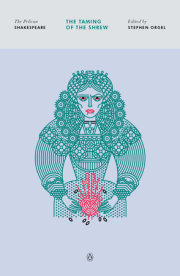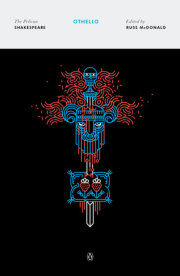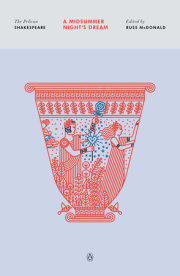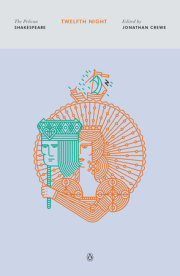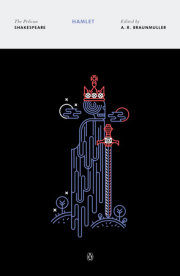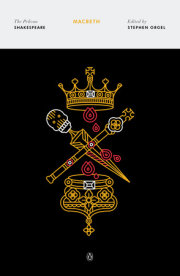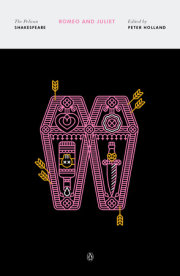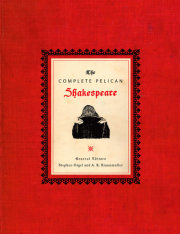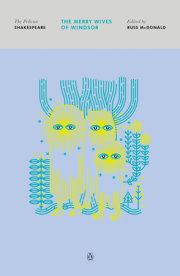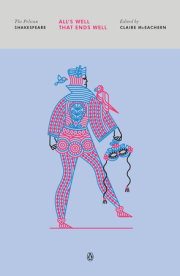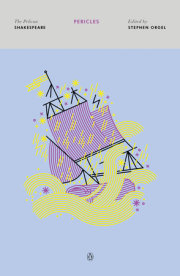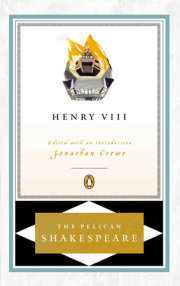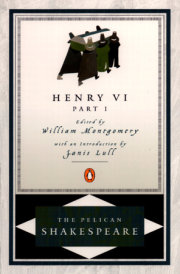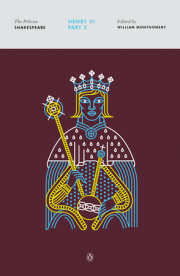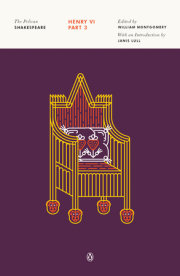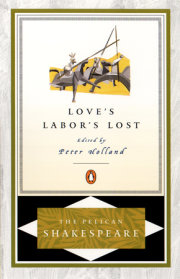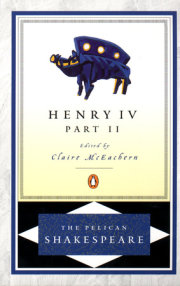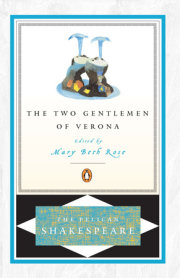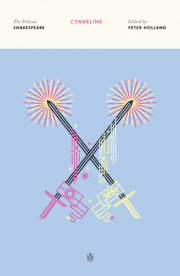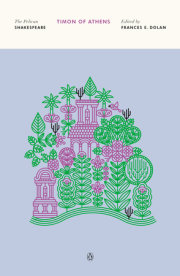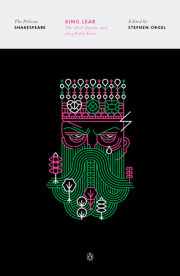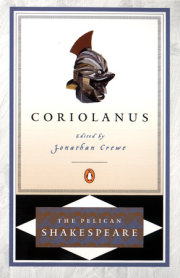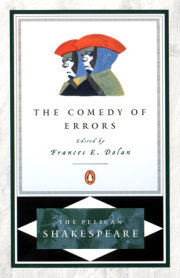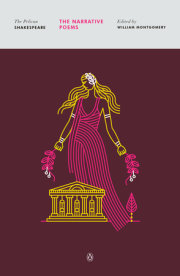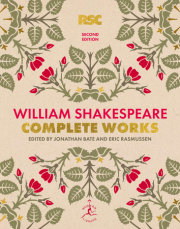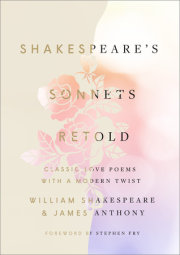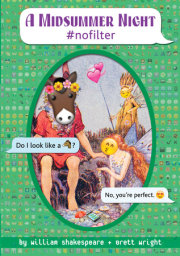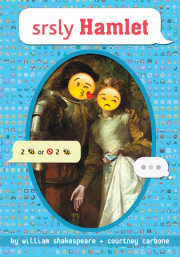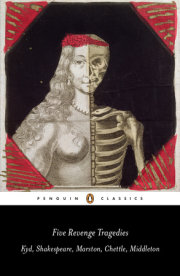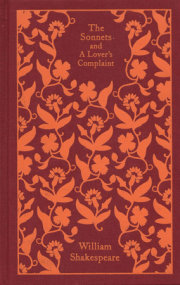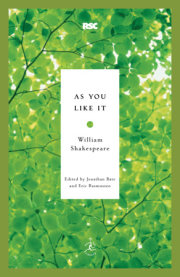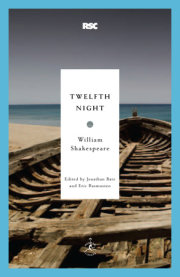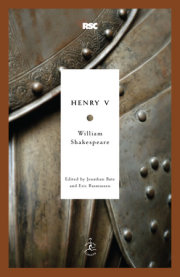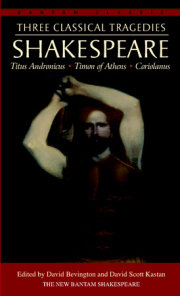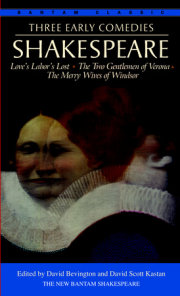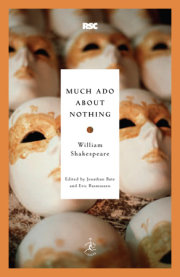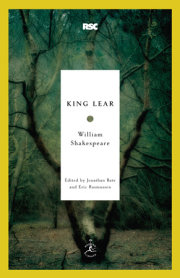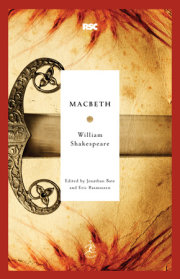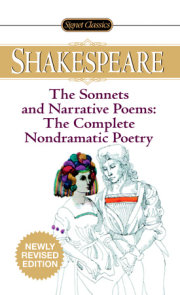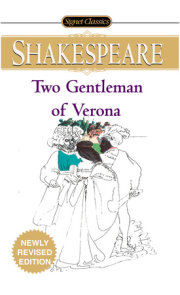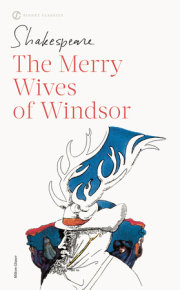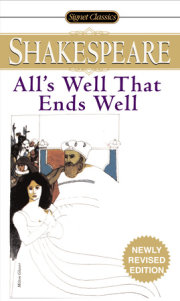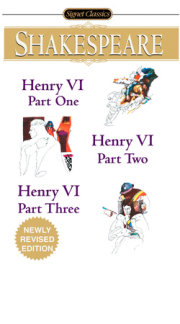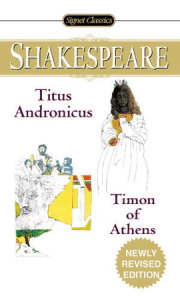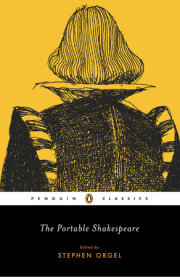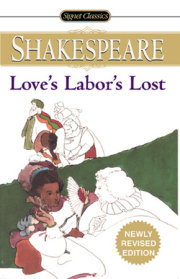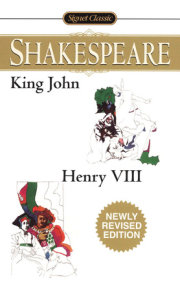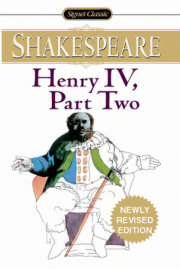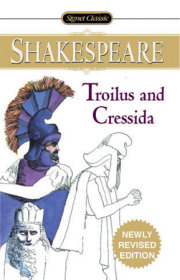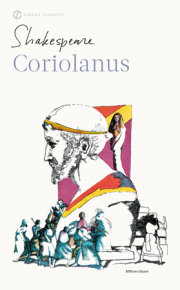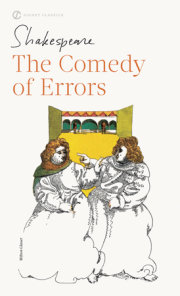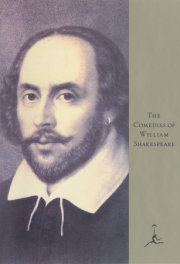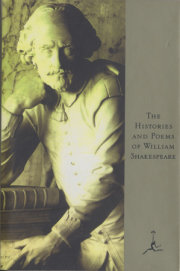Chapter One
Act 1 Scene 1 running scene 1
Enter Kent, Gloucester and Edmund
KENT I thought the king had more affected the Duke of Albany than Cornwall.
GLOUCESTER It did always seem so to us: but now in the division of the kingdom it appears not which of the dukes he values most, for qualities are so weighed that curiosity in neither can make choice of either's moiety.
KENT Is not this your son, my lord?
GLOUCESTER His breeding, sir, hath been at my charge. I have so often blushed to acknowledge him that now I am brazed to't.
KENT I cannot conceive you.
GLOUCESTER Sir, this young fellow's mother could; whereupon she grew round-wombed and had indeed, sir, a son for her cradle ere she had a husband for her bed. Do you smell a fault?
KENT I cannot wish the fault undone, the issue of it being so proper.
GLOUCESTER But I have a son, sir, by order of law, some year elder than this, who yet is no dearer in my account, though this knave came something saucily to the world before he was sent for: yet was his mother fair, there was good sport at his making and the whoreson must be acknowledged.- Do you know this noble gentleman, Edmund?
EDMUND No, my lord.
GLOUCESTER My lord of Kent: remember him hereafter as my honourable friend.
EDMUND My services to your lordship.
KENT I must love you, and sue to know you better.
EDMUND Sir, I shall study deserving.
GLOUCESTER He hath been out nine years, and away he shall again. The king is coming.
Sennet. Enter [one bearing a coronet, then] King Lear, Cornwall, Albany, Goneril, Regan, Cordelia and Attendants
LEAR Attend the lords of France and Burgundy, Gloucester.
GLOUCESTER I shall, my lord. Exit
LEAR Meantime we shall express our darker purpose.
Give me the map there. Kent or an Attendant gives Lear a map
Know that we have divided
In three our kingdom, and 'tis our fast intent
To shake all cares and business from our age,
Conferring them on younger strengths while we
Unburdened crawl toward death. Our son of
Cornwall,
And you our no less loving son of Albany,
We have this hour a constant will to publish
Our daughters' several dowers, that future strife
May be prevented now. The princes, France and
Burgundy,
Great rivals in our youngest daughter's love,
Long in our court have made their amorous sojourn
And here are to be answered. Tell me, my
daughters -
Since now we will divest us both of rule,
Interest of territory, cares of state -
Which of you shall we say doth love us most,
That we our largest bounty may extend
Where nature doth with merit challenge? Goneril,
Our eldest born, speak first.
GONERIL Sir, I love you more than word can wield the matter,
Dearer than eyesight, space and liberty,
Beyond what can be valued rich or rare,
No less than life, with grace, health, beauty, honour:
As much as child e'er loved or father found:
A love that makes breath poor and speech unable:
Beyond all manner of so much I love you.
CORDELIA What shall Cordelia speak? Love and be silent. Aside
LEAR Of all these bounds, even from this line to this, Points With shadowy forests and with champaigns riched, to the map
With plenteous rivers and wide-skirted meads,
We make thee lady. To thine and Albany's issues
Be this perpetual.- What says our second daughter?
Our dearest Regan, wife of Cornwall?
REGAN I am made of that self-mettle as my sister,
And prize me at her worth. In my true heart,
I find she names my very deed of love:
Only she comes too short, that I profess
Myself an enemy to all other joys
Which the most precious square of sense professes,
And find I am alone felicitate
In your dear highness' love.
CORDELIA Then poor Cordelia: Aside
And yet not so, since I am sure my love's
More ponderous than my tongue.
LEAR To thee and thine hereditary ever
Remain this ample third of our fair kingdom,
No less in space, validity and pleasure
Than that conferred on Goneril.- Now, our joy, To Cordelia
Although our last and least, to whose young love
The vines of France and milk of Burgundy
Strive to be interessed, what can you say to draw
A third more opulent than your sisters'? Speak.
CORDELIA Nothing, my lord.
LEAR Nothing?
CORDELIA Nothing.
LEAR Nothing will come of nothing: speak again.
CORDELIA Unhappy that I am, I cannot heave
My heart into my mouth: I love your majesty
According to my bond, no more nor less.
LEAR How, how, Cordelia? Mend your speech a little,
Lest you may mar your fortunes.
CORDELIA Good my lord,
You have begot me, bred me, loved me:
I return those duties back as are right fit,
Obey you, love you and most honour you.
Why have my sisters husbands if they say
They love you all? Happily when I shall wed,
That lord whose hand must take my plight shall
carry
Half my love with him, half my care and duty:
Sure I shall never marry like my sisters.
LEAR But goes thy heart with this?
CORDELIA Ay, my good lord.
LEAR So young and so untender?
CORDELIA So young, my lord, and true.
LEAR Let it be so: thy truth then be thy dower,
For by the sacred radiance of the sun,
The mysteries of Hecate and the night,
By all the operation of the orbs
From whom we do exist and cease to be,
Here I disclaim all my paternal care,
Propinquity and property of blood,
And as a stranger to my heart and me
Hold thee from this for ever. The barbarous Scythian,
Or he that makes his generation messes
To gorge his appetite, shall to my bosom
Be as well neighboured, pitied and relieved
As thou my sometime daughter.
KENT Good my liege-
LEAR Peace, Kent:
Come not between the dragon and his wrath.
I loved her most, and thought to set my rest
On her kind nursery.- Hence, and avoid my sight!- To
So be my grave my peace, as here I give Cordelia
Her father's heart from her. Call France. Who stirs?
Call Burgundy.- Cornwall and Albany,
[Exit Attendant]
With my two daughters' dowers digest the third.
Let pride, which she calls plainness, marry her.
I do invest you jointly with my power,
Pre-eminence, and all the large effects
That troop with majesty. Ourself by monthly course,
With reservation of an hundred knights
By you to be sustained, shall our abode
Make with you by due turn: only we shall retain
The name and all th'addition to a king: the sway,
Revenue, execution of the rest,
Belovèd sons, be yours, which to confirm,
This coronet part between you. Gives them coronet to break in half
KENT Royal Lear,
Whom I have ever honoured as my king,
Loved as my father, as my master followed,
As my great patron thought on in my prayers-
LEAR The bow is bent and drawn, make from the shaft.
KENT Let it fall rather, though the fork invade
The region of my heart: be Kent unmannerly
When Lear is mad. What wouldst thou do, old man?
Think'st thou that duty shall have dread to speak
When power to flattery bows? To plainness honour's
bound
When majesty falls to folly. Reserve thy state,
And in thy best consideration check
This hideous rashness. Answer my life my
judgement:
Thy youngest daughter does not love thee least,
Nor are those empty-hearted whose low sounds
Reverb no hollowness.
LEAR Kent, on thy life, no more.
KENT My life I never held but as pawn
To wage against thine enemies, ne'er fear to lose it,
Thy safety being motive.
LEAR Out of my sight!
KENT See better, Lear, and let me still remain
The true blank of thine eye.
LEAR Now, by Apollo-
KENT Now, by Apollo, king,
Thou swear'st thy gods in vain.
LEAR O, vassal! Miscreant! Puts his hand on his sword or attacks Kent
ALBANY and CORDELIA Dear sir, forbear.
KENT Kill thy physician, and thy fee bestow
Upon the foul disease. Revoke thy gift,
Or whilst I can vent clamour from my throat,
I'll tell thee thou dost evil.
LEAR Hear me, recreant, on thine allegiance hear me!
That thou hast sought to make us break our vows,
Which we durst never yet, and with strained pride
To come betwixt our sentences and our power,
Which nor our nature nor our place can bear,
Our potency made good, take thy reward:
Five days we do allot thee for provision
To shield thee from disasters of the world,
And on the sixth to turn thy hated back
Upon our kingdom: if on the next day following
Thy banished trunk be found in our dominions,
The moment is thy death. Away! By Jupiter,
This shall not be revoked.
KENT Fare thee well, king: sith thus thou wilt appear,
Freedom lives hence and banishment is here.-
The gods to their dear shelter take thee, maid, To Cordelia
That justly think'st, and hast most rightly said.-
And your large speeches may your deeds approve, To Goneril
That good effects may spring from words of love. and Regan
Thus Kent, O princes, bids you all adieu.
He'll shape his old course in a country new. Exit
Flourish. Enter Gloucester with France and Burgundy, Attendants
CORDELIA Here's France and Burgundy, my noble lord.
LEAR My lord of Burgundy,
We first address toward you, who with this king
Hath rivalled for our daughter: what in the least
Will you require in present dower with her,
Or cease your quest of love?
BURGUNDY Most royal majesty,
I crave no more than hath your highness offered,
Nor will you tender less.
LEAR Right noble Burgundy,
When she was dear to us, we did hold her so,
But now her price is fallen. Sir, there she stands:
If aught within that little seeming substance,
Or all of it, with our displeasure pieced,
And nothing more, may fitly like your grace,
She's there, and she is yours.
BURGUNDY I know no answer.
LEAR Will you, with those infirmities she owes,
Unfriended, new-adopted to our hate,
Dowered with our curse and strangered with our
oath,
Take her or leave her?
BURGUNDY Pardon me, royal sir:
Election makes not up in such conditions.
LEAR Then leave her, sir, for by the power that made me,
I tell you all her wealth.- For you, great king, To France
I would not from your love make such a stray
To match you where I hate, therefore beseech you
T'avert your liking a more worthier way
Than on a wretch whom nature is ashamed
Almost t'acknowledge hers.
FRANCE This is most strange,
That she whom even but now was your object,
The argument of your praise, balm of your age,
The best, the dearest, should in this trice of time
Commit a thing so monstrous to dismantle
So many folds of favour. Sure her offence
Must be of such unnatural degree
That monsters it, or your fore-vouched affection
Fall into taint, which to believe of her
Must be a faith that reason without miracle
Should never plant in me.
CORDELIA I yet beseech your majesty -
If for I want that glib and oily art
To speak and purpose not, since what I will intend
I'll do't before I speak - that you make known
It is no vicious blot, murder, or foulness,
No unchaste action or dishonoured step
That hath deprived me of your grace and favour,
But even for want of that for which I am richer:
A still-soliciting eye and such a tongue
That I am glad I have not, though not to have it
Hath lost me in your liking.
LEAR Better thou hadst
Not been born than not t'have pleased me better.
FRANCE Is it but this? A tardiness in nature,
Which often leaves the history unspoke
That it intends to do? My lord of Burgundy,
What say you to the lady? Love's not love
When it is mingled with regards that stands
Aloof from th'entire point. Will you have her?
She is herself a dowry.
BURGUNDY Royal king, To Lear
Give but that portion which yourself proposed,
And here I take Cordelia by the hand,
Duchess of Burgundy.
LEAR Nothing: I have sworn: I am firm.
BURGUNDY I am sorry, then, you have so lost a father To Cordelia
That you must lose a husband.
CORDELIA Peace be with Burgundy.
Since that respect and fortunes are his love,
I shall not be his wife.
FRANCE Fairest Cordelia, that art most rich being poor,
Most choice forsaken, and most loved despised,
Thee and thy virtues here I seize upon:
Be it lawful, I take up what's cast away. Takes her hand
Gods, gods! 'Tis strange that from their cold'st neglect
My love should kindle to inflamed respect.-
Thy dowerless daughter, king, thrown to my chance,
Is queen of us, of ours and our fair France:
Not all the dukes of wat'rish Burgundy
Can buy this unprized precious maid of me.-
Bid them farewell, Cordelia, though unkind.
Thou losest here, a better where to find.
LEAR Thou hast her, France: let her be thine, for we
Have no such daughter, nor shall ever see
That face of hers again. Therefore be gone
Without our grace, our love, our benison.
Come, noble Burgundy.
Flourish. Exeunt. [France and the sisters remain]
FRANCE Bid farewell to your sisters.
CORDELIA The jewels of our father, with washèd eyes
Cordelia leaves you. I know you what you are,
And like a sister am most loath to call
Your faults as they are named. Love well our father:
To your professèd bosoms I commit him,
But yet, alas, stood I within his grace,
I would prefer him to a better place.
So farewell to you both.
REGAN Prescribe not us our duty.
GONERIL Let your study
Be to content your lord who hath received you
At fortune's alms. You have obedience scanted,
And well are worth the want that you have wanted.
CORDELIA Time shall unfold what plighted cunning hides:
Who covers faults, at last with shame derides.
Well may you prosper.
FRANCE Come, my fair Cordelia. Exit France and Cordelia
GONERIL Sister, it is not little I have to say of what most nearly appertains to us both. I think our father will hence tonight.
REGAN That's most certain, and with you: next month with us.
GONERIL You see how full of changes his age is: the observation we have made of it hath not been little. He always loved our sister most, and with what poor judgement he hath now cast her off appears too grossly.
REGAN 'Tis the infirmity of his age: yet he hath ever but slenderly known himself.
GONERIL The best and soundest of his time hath been but rash. Then must we look from his age to receive not alone the imperfections of long-engrafted condition, but therewithal the unruly waywardness that infirm and choleric years bring with them.
REGAN Such unconstant starts are we like to have from him as this of Kent's banishment.
GONERIL There is further compliment of leave-taking between France and him. Pray you let us sit together: if our father carry authority with such disposition as he bears, this last surrender of his will but offend us.
REGAN We shall further think of it.
GONERIL We must do something, and i'th'heat. Exeunt
Act 1 Scene 2 running scene 2
Enter Bastard [Edmund] With a letter
Copyright © 2009 by William Shakespeare. All rights reserved. No part of this excerpt may be reproduced or reprinted without permission in writing from the publisher.

